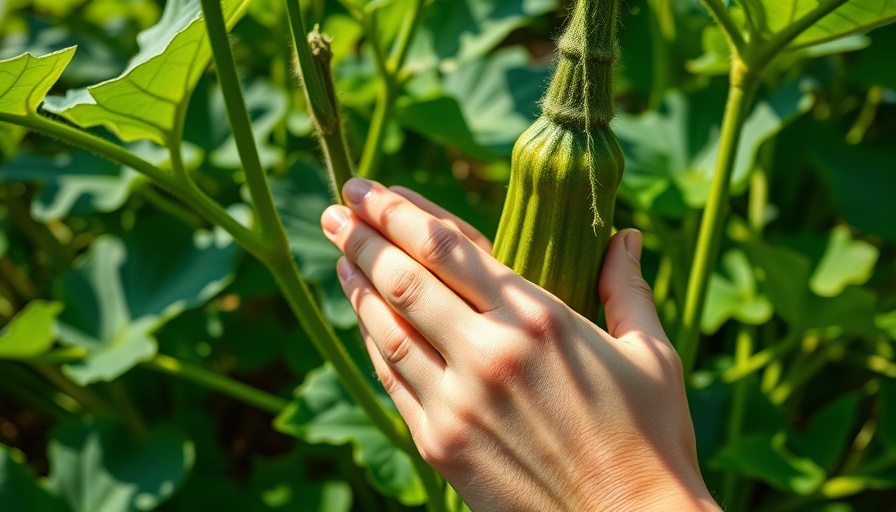
The Ocean's Hidden Crisis: Understanding Microplastic Pollution
The oceans, which cover more than 70 percent of the Earth's surface, are crucial for maintaining the planet's ecological balance. However, they are increasingly threatened by microplastic pollution—a pervasive menace that poses significant risks not only to marine ecosystems but also to human health. Microplastics, which are tiny plastic particles less than 5 millimeters in size, originate from a variety of sources, including synthetic textiles, personal care products, and industrial processes. Once released into the environment, these particles are ingested by marine life, leading them to enter the human food chain.
Recognizing the Sources of Microplastics
Understanding where microplastics come from is critical in combating this pollution. Common sources include:
- Synthetic Textiles: Washing synthetic fabrics like polyester and nylon releases microfibers into wastewater systems.
- Personal Care Products: Many beauty products contain non-biodegradable microbeads that slip through everyday filtration systems.
- Industrial Processes: Factories often discharge plastic dust and pellets during manufacturing, contributing significantly to marine pollution.
- Degraded Plastic Waste: As larger plastic items break down in marine environments, they become microplastics, aggravating the pollution crisis.
Despite traditional water treatment methods struggling to remove these pollutants, innovative approaches are emerging from the most unexpected places—everyday plants.
Okra and Fenugreek: Nature's Clean-Up Crew
Recent studies reveal that plant extracts, particularly from okra and fenugreek, can effectively remove microplastics from water. Scientists have discovered that polysaccharides present in these vegetables can bind to microplastic particles, facilitating their extraction. Research indicates that fenugreek can remove up to 93 percent of microplastics, while okra achieves a notable 67 percent efficiency—and the combination of both methods can reach 70 percent efficiency within just 30 minutes. Such findings provide an exciting glimpse into sustainable, eco-friendly solutions for ocean pollution.
Practical Steps for Households to Tackle Microplastics
While the scientific community explores these innovative solutions, there are several straightforward steps that homeowners can take to prevent microplastics from entering waterways:
- Use Laundry Bags: Investing in specially designed laundry bags captures synthetic fibers when washing clothes, drastically reducing microplastic release.
- Avoid Plastic Microbeads: Opt for personal care products that are microbead-free to prevent these particles from reaching the oceans.
- Support Sustainable Practices: Choose products made from biodegradable materials and support brands dedicated to eco-friendly manufacturing.
The Future of Ocean Cleaning: What We Can Do
Research into the potential of plants like okra and fenugreek highlights a promising trend toward natural solutions in fighting pollution. As these plants demonstrate their ability to bind with and remove microplastics from water, there’s an opportunity for larger-scale applications—from domestic usage to industrial implementations.
Integrating more natural and plant-based solutions in environmental cleaning processes can diminish reliance on harsh chemicals, reducing further damage to ecosystems. Moreover, innovative research underscores the importance of valuing nature in our fight against pollution, reminding us that solutions often lie in our surroundings.
Embracing Change: The Role of Individuals
As we stand on the front lines in the battle against microplastic pollution, it's valuable to reflect on how our actions contribute to the problem. Each small decision, from the products we buy to how we dispose of waste, can have a cumulative effect. By promoting awareness about the impact of microplastics on marine life and human health, individuals can spark change within their communities.
Moreover, disseminating knowledge about innovative solutions like the use of plant extracts can cultivate more environmentally-conscious consumer behavior. Together, we can foster a healthier planet for ourselves and future generations.
Join the Movement for Clean Oceans
As awareness grows regarding the threats posed by microplastics, the emphasis on natural, plant-based solutions, such as okra and fenugreek, is paramount. Let’s not only celebrate these advancements but actively engage in practices that contribute to cleaner, healthier oceans. Explore how you can make environmentally-friendly choices in your daily routines, and inspire others to join in the effort for sustainable ocean protection.
 Add Row
Add Row  Add
Add 






Write A Comment